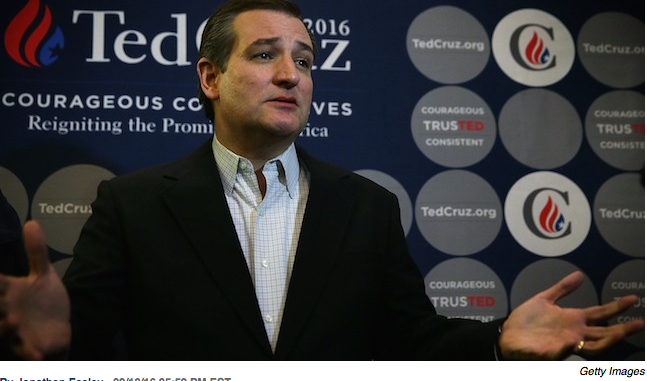Ted Cruz is now the flavor of the week. He has risen dramatically in polls, both nationally and in key states like Iowa, and now many pundits are saying he’s the man to watch. Maybe so, but that vastly underestimates the challenge the very conservative senator from Texas still faces.
Cruz’s rise is almost entirely due to his finally getting strong levels of support among the most angry and the most conservative elements of the party. If they were the party, it would be looking pretty good for Ted. But they are not, and therein lies Cruz’s challenge. Call it the Cruz Ted bears.
The data are clear that Cruz is consolidating the party’s Tea Party and very conservative factions. Three national polls in November break Republicans into three ideological categories, dividing conservatives into “very” and “somewhat” conservatives. They all show Cruz’s support comes primarily from that first group. Quinnipiac has him with 27 percent among very conservatives, 7 percent among somewhat conservatives, and 6 percent among moderates. McClatchy/Marist has him at 21-8-5 among those three groups, and Public Policy Polling (PPP) has him at 29-10-1. The ideological right likes him a lot, while the center and the left of the Party are at best lukewarm towards him.
The same trends are evident if you break voters into Tea Party supporters and non-supporters. Quinnipiac has Cruz getting 30 percent of Tea Partiers compared with only 13 percent overall. PPP has him getting 26 percent of Tea Partiers but only 10 percent of those who say they are not.
These trends are even stronger in very conservative Iowa. The two most recent polls, Quinnipiac and CBS/YouGov, have Cruz getting 38 or 41 percent, respectively, among very conservatives. But his support drops precipitously among somewhat conservatives (17 or 11 percent), and falls off the cliff among moderates and liberals (6 or 3 percent). Here too the Tea Party provides Cruz with his base. Quinnipiac has him getting 42 percent of Tea Partiers; CBS/YouGov has him at 30; an earlier PPP poll had him at 34 percent. Cruz’s support among non-Tea Partying Republicans remains well under 15 percent.
Caucus states tend to have higher proportions of very conservative voters than do primaries, so Cruz is catering to the right group to win the Hawkeye State. But those trends are ominous for him in later, less conservative, states.
New Hampshire’s primary has long had one of the largest shares of moderates, and the smallest shares of very conservative voters, of any Republican contest. It should be no surprise, then, that Marco Rubio is running second there in the most recent polls. But Cruz’s problems extend to supposedly conservative South Carolina, too. Cruz remains mired in fourth place in South Carolina according to the RealClearPolitics average. Despite his national surge, he finishes behind Marco Rubio in two of the last three polls. The reason is clear: Cruz is losing the center-left majority of the Gamecock State’s GOP voters.
Source: Henry Olsen, www.nationalreview.com
 Listen Online
Listen Online Watch Online
Watch Online Find a Station in Your Area
Find a Station in Your Area









 Listen Now
Listen Now Watch Online
Watch Online
